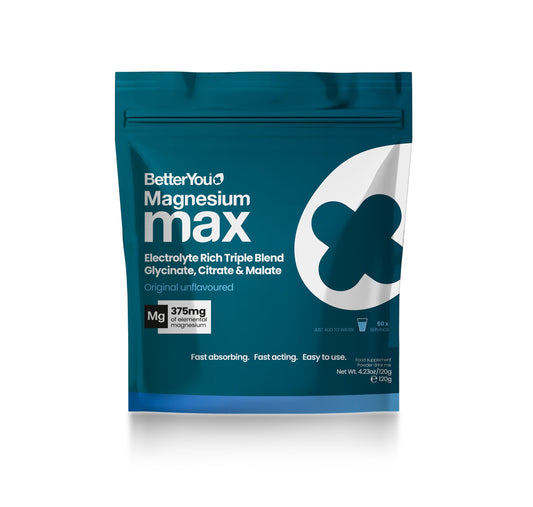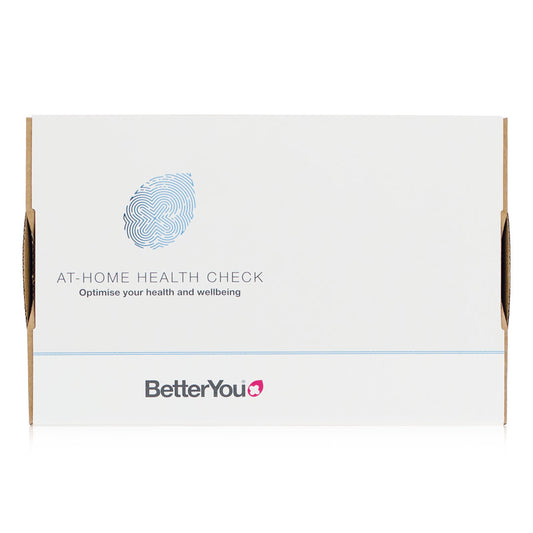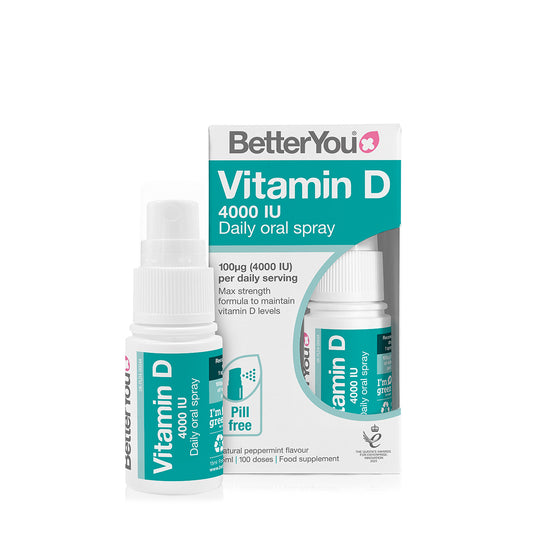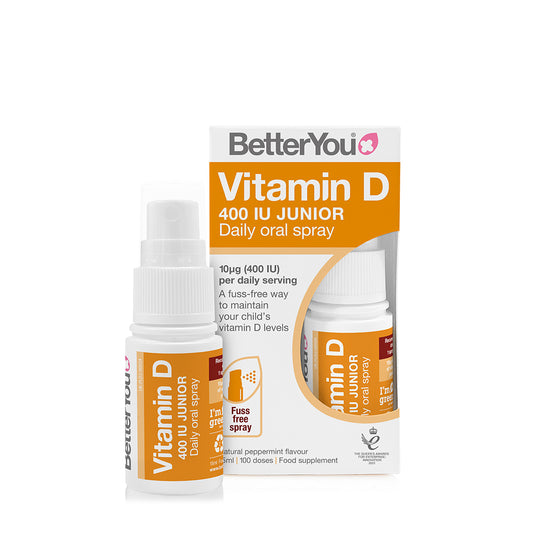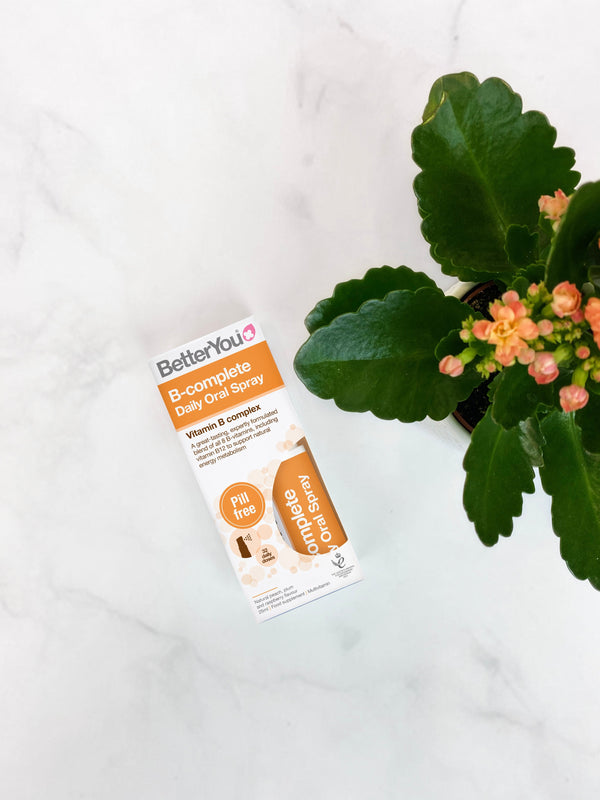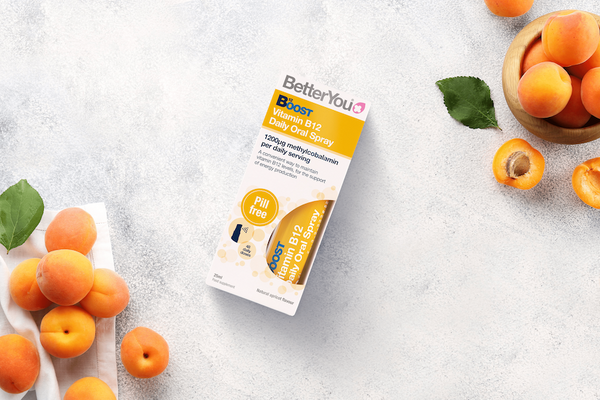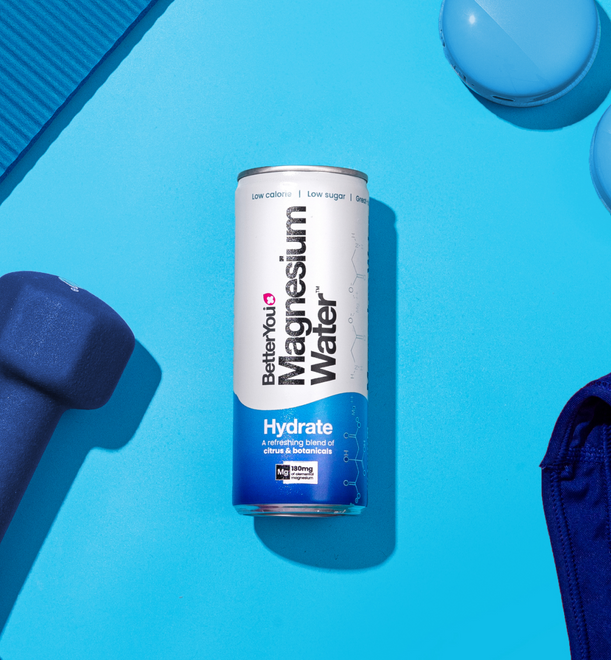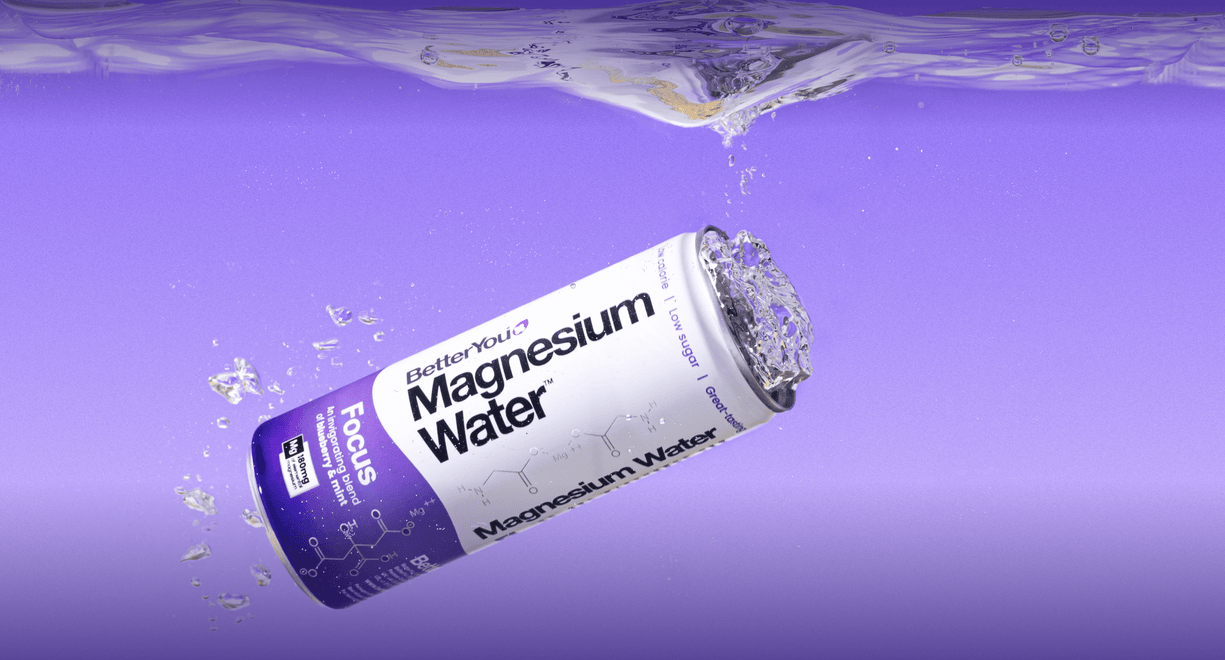There are several signs of low vitamin D, including weak muscles, bones and an impaired immune system. Once you understand the common symptoms, you can begin to work on increasing levels and maintaining normal and healthy body function.
Read on as we look at the tell-tale signs that you may be low in the sunshine vitamin, exploring the symptoms and causes of vitamin D deficiency. Find out if low vitamin D can cause tiredness and which sources of vitamin D can help boost your nutrient levels in our guide.
In this guide:
What is Vitamin D Deficiency?
Deficiency means a lack or shortage of something. So, if you have vitamin D deficiency, it means you aren’t getting enough vitamin D, also known as calciferol. Identifying the common signs of vitamin D deficiency can help you spot and prevent potential health problems.
The National Institute for Health and Care Excellence (NICE) estimates that vitamin D deficiency affects one in five adults and one in six children in the UK – that’s 10 million of us!
Keeping on top of your recommended vitamin D intake is essential to avoid deficiency and low vitamin D symptoms. If you struggle to get enough vitamin D from your diet and lifestyle, vitamin D supplements could help you reach optimum levels to support your bone, teeth and immune health.
Shop our vitamin D oral sprays

What are the Symptoms of Vitamin D Deficiency?
Vitamin deficiencies can present in various ways, and some are easier to spot than others. We've put together a list of the most common vitamin D deficiency symptoms to help you identify if you’re running low.
1. Aching bones
Vitamin D is vital for supporting bones and their structure. The nutrient helps to regulate calcium within the body—which is essential for maintaining strong teeth and bones.
A key indicator of low vitamin D symptoms is having achy bones. This could be the result of your bones becoming weaker from deficiency, which could increase the risk of stress fractures.
2. Weak muscles
As well as maintaining bones, vitamin D is important for its role in supporting normal muscle function. Poor muscle strength and weakness may be a sign of low vitamin D. This is particularly common among elderly people as the capacity for the skin to synthesise the provitamin calcidiol decreases with age.
In fact, weak muscles could be a sign that you’re low in both vitamin D and magnesium. Magnesium and vitamin D work in tandem by supporting the enzymes that enable vitamin D metabolism. Ensuring your muscles are replenished with magnesium supplements can help the bioavailability of vitamin D in your body, which directly impacts vitamin D absorption.
3. Feeling low
If your mood has been lower than usual, it could be a sign of low vitamin D. Lower levels of the ‘sunshine’ vitamin can affect serotonin (the happy hormone) concentration in the brain.
Sunlight is our primary source of vitamin D. However, it can be challenging to get the recommended intake in the UK, particularly in winter. Fewer daylight hours and the lower angle of the sun can impact our exposure to UVB (ultraviolet B radiation) rays, which helps us produce vitamin D naturally. As a result, you may be more likely to experience low mood as your levels deplete in winter.
4. Constant coughs and colds
Vitamin D supports the immune system by activating immune defences. Without optimum levels of vitamin D, our immune cells are unable to react effectively. So, if you suffer from coughs, colds, or other illnesses frequently, it could be a sign of low vitamin D.
Immune system supplements that are rich in vitamin D, vitamin C, and other nutrients can help boost your immune system and stave off common colds and bugs.
5. Hair Loss
Nobody wants their hair to thin. However, hair loss can be a symptom of vitamin D deficiency. Vitamin D is metabolised in the skin by keratinocytes, which are responsible for keratin. Keratin is a protein that helps to grow strong hair, skin, and nails. Having low levels of vitamin D means these cells may have trouble maintaining healthy levels of hair growth and shedding.
6. Weight Gain
While weight gain is not a direct sign of low vitamin D, it could be a secondary effect. Those experiencing low mood, loss of bone mass, and tiredness may find weight management more difficult. If you’re concerned about your weight in any way, you should speak to your doctor.
7. Reduced Wound Healing
Another potential sign of being low in vitamin D is a decline in wound healing, as vitamin D helps to regulate cells in tissues around the body.
Perhaps you’ve cut your finger cooking, or your child has grazed their knee. Maybe you’re waiting for a blemish to heal. Low levels of vitamin D could slow this process down, as vitamin D works to increase the production of epidermal and platelet growth. Slow wound healing can also be a side effect of vitamin K deficiency.
Can Low Vitamin D Cause Tiredness?
Yes, if you’re low in vitamin D, symptoms can also include fatigue and tiredness. Vitamin D plays a key role in the regulation of our circadian rhythms, which can affect the quality of our sleep.
Getting a good night’s rest is essential to waking up feeling refreshed, so it’s important to keep our vitamin D levels topped up to optimum levels. Taking a sleep supplement containing vitamin D could help improve your sleep cycle and fight fatigue.

Causes of Vitamin D Deficiency
There is no one singular cause of vitamin D deficiency. We produce vitamin D naturally from exposure to the sun, hence its nickname as the ‘sunshine vitamin’. You can also get vitamin D from your diet. Therefore, there are many reasons why you might not be getting enough vitamin D and be at risk of deficiency.
If you’re experiencing low vitamin D symptoms, it’s normal to question why you could be deficient. Here are the top causes of vitamin D deficiency:
- Limited sun exposure - As our primary source of vitamin D, limited time in the sun may cause our levels to drop. This may be particularly true for those who work in office jobs and spend lots of time indoors, who may be more likely to experience signs of low vitamin D.
- Lack of vitamin D in your diet - If you’re not consuming food with a high vitamin D content, you may also experience signs of low vitamin D.
- Gut troubles – People who suffer from gut problems, or who have had weight loss surgery, may struggle to absorb vitamin D from food. This is because vitamin D is a fat-soluble vitamin.
BetterYou Know
BetterYou vitamin D oral sprays deliver vitamin D directly into the bloodstream through the soft tissue in the mouth. This makes them a fast-acting and effective alternative for people who struggle with gastrointestinal absorption, such as those diagnosed with IBS.
Our convenient and fast-absorbing products are designed help you to increase and maintain your vitamin D levels. Each product contains different amounts of vitamin D, perfect for every member of the family.
5 Benefits of Vitamin D
If you’re noticing signs of deficiency, you may not be reaping many of the benefits of vitamin D. Here are just a few advantages of keeping your vitamin D levels topped up to optimum levels:
- Bone health - Vitamin D is an essential bone vitamin that helps to regulate calcium in your bones and teeth.
- Conception and pregnancy – Vitamin D helps to support a healthy reproductive system and provide the best nutrients to your baby. That’s why we include vitamin D in our conception supplements and pregnancy vitamins.
- Improved muscle function – Boosting your vitamin D intake to optimum levels can help increase muscle function.
- Immune health – Known to help strengthen the immune system, increasing your vitamin D to the recommended daily intake could help you fend off colds and illnesses.
- Improved mood - Reaching optimum levels of vitamin D can help to support the production of serotonin in the brain, boosting your mood and memory function.
Sources of Vitamin D
The best source of vitamin D outside of your diet is sunlight. But if you’re not getting enough vitamin D through sun exposure, it’s important to meet your recommended intake from the food you eat.
At BetterYou, we take a food-first approach to improved health and wellbeing. You can help fight the signs of low vitamin D with these key sources:
- Oily fish - salmon, mackerel, and sardines
- Red meat - beef, lamb, and pork
- Egg yolks
- Fortified foods - cereals, and even some spreads
- Vitamin D supplements

Are You at Risk of Low Levels?
Certain groups of people may be more at risk of vitamin D deficiency. These include:
Pregnant and Breastfeeding
Not only is vitamin D helpful in conception, but it also helps to support a healthy full-term pregnancy. Vitamin D deficiency is common among pregnant women and has been linked to an increased risk of pregnancy complications, such as pre-eclampsia and preterm birth.
Including vitamin D in your pregnancy supplements can help support your health, as well as the growth and development of your baby.
If you’re breastfeeding, the NHS recommends taking vitamin D supplements throughout your special journey. Mothers who breastfeed exclusively are also advised to give their babies an 8.5 to 10 microgram vitamin D supplement every day, especially if they don’t receive extra nutrients from fortified formula milk.
Children Under 5
Vitamin D is important for the development of children’s bones and muscles. Children can be at risk of developing rickets if they do not get enough vitamin D from sunlight or their diet. Meanwhile, children under five years old are more at risk of low calcium blood levels if they have vitamin D deficiency.
Shop our children’s oral spray vitamins
Vegetarians & Vegans
People who avoid meat and other animal products in their diet may be more susceptible to vitamin D deficiency. Dietary requirements may affect the ability to obtain adequate vitamin D from food sources.
Vegetarians and vegans may consider taking vitamin D supplements to ensure they’re getting adequate amounts and are not at risk of vitamin D deficiency.
People with No/Low Sun Exposure
Due to modern lifestyles and challenges, many people do not get enough sun exposure these days. This may be because they work indoors or do not live in a climate with enough sun exposure. In the UK, UVB rays aren’t strong enough between November and March for vitamin D production. This means that for large parts of the year, vitamin D production from the sun is limited, leading to increased risk of vitamin D deficiency.
People with Darker Skin
People with more melanin in their skin may be at a higher risk of developing vitamin D deficiency. Melanin acts as a natural barrier to UVB rays. This means people with darker skin may need more UVB exposure than people with lighter skin to produce enough vitamin D from the sun. They may also need to take nutritional supplements to help fill this gap in vitamins.
People Aged 65 and Over
People aged 65 and over are often at a higher risk of vitamin D deficiency. This is because the body finds it harder to make vitamin D as you age. Vitamin D deficiency in older people can lead to a loss in mobility. It can also add to symptoms of osteoporosis and increase the risk of falls and fragility fractures.
The people on this list could be at risk of developing symptoms of vitamin D deficiency. Always seek medical advice from your GP before taking supplements if you think you may be at risk of low vitamin D.
How Do You Know if Your Vitamin D Is Low?
If you’re experiencing some of the common symptoms of low vitamin D, the easiest way to confirm whether your suspicions are right is by taking a vitamin D test.
Our at home vitamin D test kit makes it easy to check your baseline levels. The test requires a couple of drops of blood on a card that will then be tested by our partner lab, Sandwell and West Birmingham NHS Trust.
Each vitamin test kit comes with a complimentary vitamin spray worth up to £10.95 and a personalised supplementation plan. That way, you can kickstart your vitamin journey based on your unique nutritional needs.
Tests for signs of low vitamin D rely on how much is present in the blood. The following measurements identify the ranges for deficiency:
- 50nmol/l+ = adequate
- 25 - 50nmol/l = insufficient
- <25nmol/l = deficient
The recommended dosage of vitamin D for adults is 10μg or 400 IU, with the safe upper limit being 100μg (4,000 IU).
A Better Way to a BetterYou
We understand that modern lifestyles, food production and our environment can make it challenging to get the nutrients we need every day from diet alone. That’s why we’re here—to help offer a better way to a BetterYou.
Traditional tablets and capsules don’t always suit everyone. But no one should miss out on effective nutritional support. As experts in fast-acting, impactful supplements, we take essential ingredients in their most bioavailable form and combine them with innovative delivery methods. Our oral sprays and transdermal oils ensure quick and efficient nutrition right where you need them.
No matter if you’re looking for immune support, improved sleep or effective children’s vitamins, you can find us at major retailers. Browse our products in Tesco, Holland & Barrett, and Boots, as well as online and on Amazon—making it easy to find the products you need.
Read related articles
5 Myths Surrounding Vitamin D Debunked
Vitamin D2 vs D3 - What's the difference?
4 Signs You're Suffering From Low Iron
